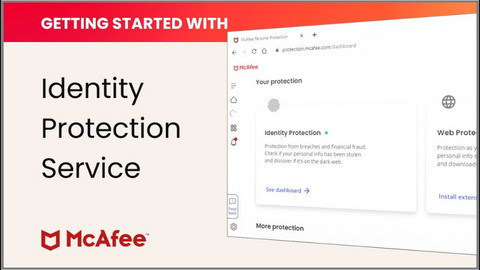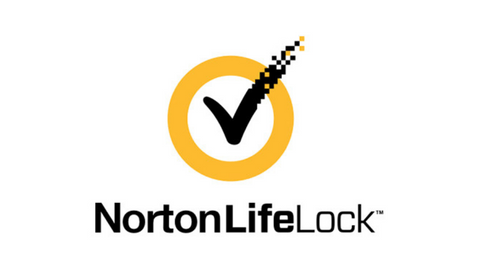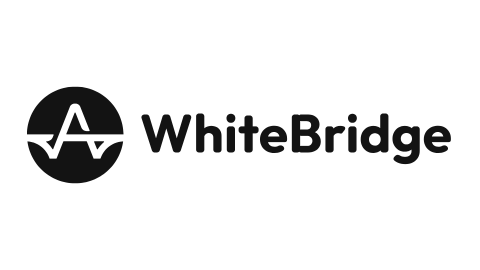How private is your search history? Read on to find out.
In our increasingly digital world, search engines have become an indispensable tool for finding information, answering questions, and navigating the vast expanse of the internet.
Whether you’re looking up a recipe, researching a medical condition, or simply trying to settle a friendly debate, chances are you turn to a search engine multiple times a day.
But have you ever stopped to consider just how private your search history really is?
Let’s dive in and uncover the truth about the privacy of your search history.
Table of Contents
What Information Do Search Engines Collect?
When you use a search engine, you receive and provide information. Here’s a breakdown of the types of data that search engines typically collect:
- Search queries: The actual terms and phrases you type into the search bar.
- IP address: Your device’s unique identifier on the internet can often be used to determine your approximate location.
- User agent: Information about your device and browser, including the type of device, operating system, and browser version.
- Timestamps: The date and time of your searches.
- Click data: Which search results do you click on, and how long do you spend on those pages?
- Cookies and other tracking technologies: Small pieces of data stored on your device that can track your behaviour across multiple searches and websites.
- Account information: If you’re logged into an account associated with the search engine (like a Google account), additional personal information may be linked to your searches.
This data collection allows search engines to profile your interests, habits, and potential needs comprehensively. While this can lead to more personalized and relevant search results, it also raises significant privacy concerns.
How Do Search Engines Use And Store Your Data?
The data collected by search engines serves multiple purposes:
- Improving search results: By analyzing search patterns and user behaviour, search engines can refine their algorithms to provide more relevant results.
- Personalization: Your search history helps tailor future results to your preferences and interests.
- Targeted advertising: Many search engines use your search data to serve personalized ads on their platforms and across the web.
- Product development: Aggregate search data informs the development of new features and services.
- Compliance with legal requests: In some cases, search engines may be required to provide user data to law enforcement or government agencies.
As for storage, most major search engines retain user data for extended periods. Google, for instance, keeps your search history indefinitely unless you manually delete it or set up auto-delete options. Bing retains search queries for 6 months, while DuckDuckGo claims not to store personal information at all.
It’s worth noting that even if a search engine deletes your data from its active servers, backups and archived data may persist for longer periods.
Privacy Policies Of Major Search Engines
Let’s take a closer look at the privacy policies of some popular search engines:
Google: As the most widely used search engine, Google’s privacy practices have a significant impact. Google collects extensive data on users, including search history, location data, and information from other Google services you might use (Gmail, YouTube, etc.). While Google offers tools to manage your privacy settings and delete your data, it’s important to note that much of your activity is tracked and stored by default.
Google uses this data for personalization, advertising, and improving its services. They also state that they may share information with law enforcement when required by law.
Bing: Microsoft’s Bing collects data similar to Google’s, including search queries, IP addresses, and device information. They retain search queries for 6 months but anonymize the data by removing the last octet of the IP address. Bing also uses data for personalization and advertising purposes.
Microsoft offers privacy controls, including clearing your search history and opting out of personalized ads.
DuckDuckGo: DuckDuckGo positions itself as a privacy-focused alternative to mainstream search engines. They claim not to collect or store personal information and don’t track users across searches. While they collect anonymous data to improve their service, this isn’t linked to individual users.
It’s important to note that while DuckDuckGo doesn’t track you, the websites you visit through their search results may still have their tracking mechanisms.
Startpage: Startpage is another privacy-oriented search engine claiming not to collect or share personal information. They serve Google search results but act as an intermediary, stripping out identifying information before passing your query to Google.
Potential Risks And Consequences Of Search History Exposure
While it may seem harmless to have your search history stored by tech companies, there are several potential risks to consider:
- Privacy breaches: Your personal search history could be exposed if a search engine’s databases are hacked or compromised.
- Government surveillance: In some countries, government agencies can access search history, potentially leading to persecution or discrimination based on your online activities.
- Targeted advertising: While not inherently harmful, some users find personalized ads based on their search history intrusive or manipulative.
- Discrimination: Search history could potentially be used for discriminatory practices, such as in employment screening or insurance assessments.
- Personal embarrassment: If your search history becomes public or is accessed by others, it could lead to personal or professional embarrassment.
- Identity theft: Detailed search histories can provide valuable information to identity thieves, especially when combined with other data breaches.
- Manipulation: Knowledge of your search habits and interests could potentially be used to manipulate your opinions or behaviours through targeted content.
Real-world examples of search history exposure:
- In 2006, AOL released anonymized search data for research purposes, but journalists were able to identify specific individuals from the data, highlighting the personal nature of search queries.
- In 2013, it was revealed that the NSA had been collecting search data from major tech companies, including Google, through its PRISM program.
- In 2017, a US court ruled that border agents could search the phones and laptops of international travellers without a warrant, potentially exposing search histories.
Best Identity Protection Deals
Steps You Can Take To Protect Your Search Privacy
While it’s challenging to achieve complete privacy in the digital age, there are several steps you can take to enhance the privacy of your search history:
- Use privacy-focused search engines: Consider alternatives like DuckDuckGo or Startpage that prioritize user privacy.
- Adjust your search engine privacy settings: If you continue to use mainstream search engines, take advantage of privacy controls. For example, you can turn off search personalization in Google and set up auto-delete for your activity.
- Use private browsing mode: While not foolproof, private or incognito mode can help prevent your browser from saving your search history locally.
- Employ a VPN (Virtual Private Network): A VPN can mask your IP address and encrypt your internet traffic, making it harder for search engines to track your location and identity.
- Clear your search history regularly: Manually delete your search history from your browser and search engine accounts.
- Use different search engines for different purposes: Consider using a mainstream search engine for general queries and a privacy-focused one for more sensitive searches.
- Be mindful of logged-in services: Remember that your searches may be linked to your profile if logged into an account (like Google). Log out when conducting sensitive searches.
- Use search engine alternatives: Consider using specialized databases or websites instead of general search engines for certain queries.
- Enable Do Not Track: While not universally respected, enabling your browser’s “Do Not Track” feature can signal your privacy preferences to websites.
- Use ad blockers and anti-tracking extensions: Browser extensions can help block tracking scripts and targeted ads.
- Be cautious with voice searches: Voice assistants often save audio recordings of your searches. Review and delete these regularly if you use voice search features.
Conclusion
In this post, I answered the question – How private is your search history?
The privacy of your search history is a complex and evolving issue. While search engines have made great strides in providing transparency and user controls, the fundamental business model of many internet companies relies on collecting and utilizing user data.
As a user, it’s crucial to know what information you share when you search online and take proactive steps to protect your privacy. By understanding the policies of different search engines, utilizing privacy tools, and being mindful of your digital footprint, you can better safeguard your personal information.
Ultimately, the question “How private is your search history?” has no simple answer. It depends on the search engines you use, your precautions, and your comfort level with data collection. As technology advances, staying informed and regularly reassessing your online privacy practices will be key to maintaining control over your digital life.
Remember, in the age of big data, your search history is more than just a record of your curiosities – it’s a valuable asset that provides insights into your thoughts, behaviours, and potential future actions. By protecting your search privacy, you’re not just safeguarding data; you’re preserving your autonomy in the digital world.
INTERESTING POSTS
About the Author:
Christian Schmitz is a professional journalist and editor at SecureBlitz.com. He has a keen eye for the ever-changing cybersecurity industry and is passionate about spreading awareness of the industry's latest trends. Before joining SecureBlitz, Christian worked as a journalist for a local community newspaper in Nuremberg. Through his years of experience, Christian has developed a sharp eye for detail, an acute understanding of the cybersecurity industry, and an unwavering commitment to delivering accurate and up-to-date information.


















